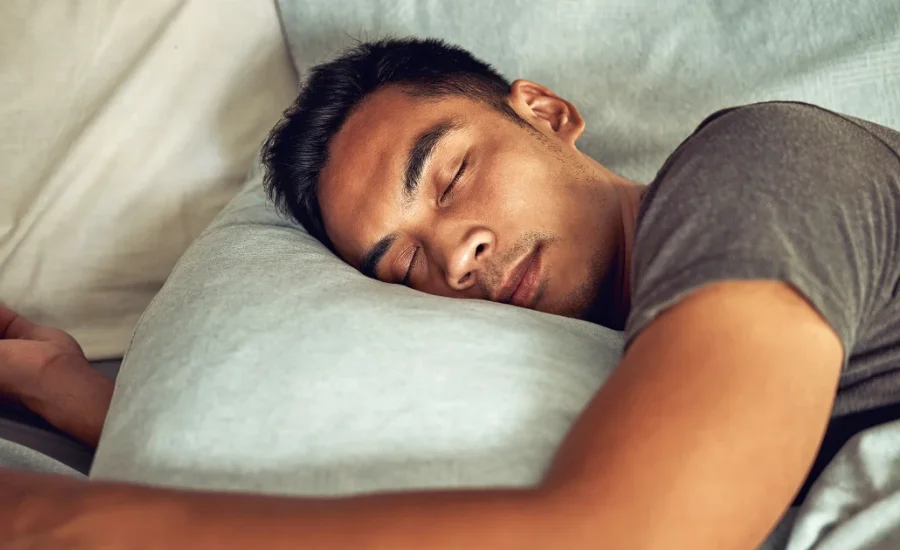Struggling with restless nights and waking up feeling drained? Many people encounter sleep challenges that impact both physical health and mental wellness, disrupting daily life and overall satisfaction.
Fortunately, effective approaches exist to achieve rejuvenating sleep. By embracing healthy habits and making lifestyle adjustments, you can significantly enhance your sleep quality:
Establish a Regular Sleep Schedule: Maintain consistent sleep and wake times each day to stabilize your internal body clock, making it easier to fall asleep and wake up refreshed.
Create a Calming Bedtime Routine: Wind down with relaxing activities such as reading or listening to soothing music. Avoid screens before bed to minimize disruptions to your sleep.
Optimize Your Sleep Environment: Ensure your bedroom promotes restful sleep by keeping it cool, dark, and quiet. Invest in comfortable bedding to support a comfortable sleep posture.
Reduce Stimulants: Limit consumption of caffeine and alcohol before bedtime as they can disturb sleep patterns. Instead, opt for herbal teas or water to hydrate without interfering with sleep.
Incorporate Physical Activity: Engage in regular exercise to encourage deeper sleep, but avoid vigorous workouts close to bedtime to prevent heightened alertness.
Manage Stress: Practice relaxation techniques like deep breathing or meditation to calm your mind before sleep, reducing anxiety that can hinder rest.
By prioritizing these strategies, you can enhance your sleep quality and awaken feeling revitalized and prepared for the day ahead. Improving sleep is crucial for overall health and well-being, ensuring you can tackle daily challenges with energy and clarity.
Understanding The Importance Of Quality Sleep2907
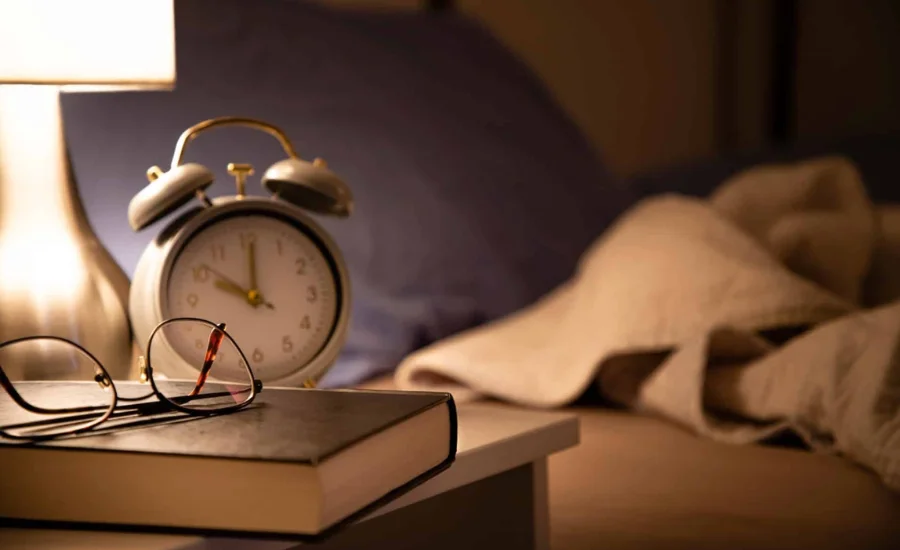
“In our modern, rapidly evolving society, the importance of restorative sleep cannot be emphasized enough.”Adequate sleep plays a crucial role in maintaining optimal physical and mental health. It boosts cognitive function, enhances mood, and fortifies the immune system. When we achieve restful sleep, our brains operate more efficiently, sharpening our ability to think clearly, make informed decisions, and retain information effectively. Additionally, a good night’s sleep promotes emotional stability, fostering a balanced and positive outlook throughout the day.
Insufficient sleep leaves us vulnerable to stress, anxiety, and various health issues. Persistent sleep deprivation can lead to serious conditions such as high blood pressure, diabetes, obesity, and heart disease. It also compromises our immune defenses, increasing susceptibility to infections and illnesses. Moreover, inadequate sleep adversely affects mental well-being, heightening the risk of depression and anxiety disorders.
In today’s busy landscape where work, family, and social commitments often dominate, prioritizing sleep is more critical than ever. By ensuring sufficient high-quality sleep, we can significantly enhance our overall quality of life. Valuing the role of sleep empowers us to take proactive measures to secure the rejuvenating rest necessary to thrive in our demanding environment.
Seeking Professional Help For Persistent Sleep Issues
If lifestyle adjustments and natural remedies fail to alleviate sleep issues, seeking guidance from a healthcare provider is crucial. Persistent sleep disturbances may indicate underlying medical conditions that require professional evaluation. By consulting with a healthcare professional, individuals can undergo a thorough assessment to identify potential medical causes contributing to their sleep problems. Conditions such as sleep apnea, restless leg syndrome, chronic pain, and mental health disorders like depression and anxiety can significantly impact sleep quality.
A visit to a doctor or specialist allows for comprehensive evaluation and personalized treatment planning. Diagnostic tests such as a sleep study may be recommended to better understand sleep patterns and diagnose specific disorders. Based on these findings, healthcare providers can develop tailored treatment plans involving medication, therapy, lifestyle adjustments, or a combination of these approaches.
In some cases, referral to a sleep specialist or mental health professional may be necessary for specialized care. Cognitive-behavioral therapy for insomnia (CBT-I), for example, addresses behaviors and thoughts contributing to poor sleep and has proven effective in managing chronic sleep issues.
Seeking medical advice ensures individuals receive appropriate care to improve sleep and overall health. Addressing sleep disturbances promptly can lead to better long-term outcomes and enhance quality of life.
Identifying Common Sleep2907 Disruptors
Various factors can disrupt our sleep patterns, including stress, unhealthy habits, and environmental influences. Stress, especially, impacts our ability to relax and maintain sleep. It triggers the release of cortisol, heightening alertness and hindering relaxation, making it challenging to fall asleep. Additionally, exposure to blue light from devices like smartphones and computers suppresses melatonin production, disrupting our natural sleep-wake cycle and delaying sleep onset.
To improve sleep quality, establishing a consistent sleep schedule is crucial. Regular bedtimes and wake-up times regulate our internal clock, promoting easier sleep initiation and natural waking. Creating a soothing bedtime routine signals our bodies to wind down, with activities such as reading, bathing, relaxation exercises, or calming music.
Optimizing the sleep environment is equally important. A cool, dark, and quiet bedroom supports restful sleep. Quality bedding, including a comfortable mattress and pillows, enhances sleep comfort significantly. Minimizing exposure to blue light from screens at least an hour before bed helps the body transition to sleep mode effectively.
Reducing caffeine and alcohol intake, particularly in the evening, can also enhance sleep quality. Caffeine stimulates alertness, while alcohol disrupts sleep cycles despite its initial drowsiness-inducing effects. Choosing caffeine-free herbal teas or warm milk before bed can promote relaxation without interfering with sleep patterns.
Formin Healthy Sleep2907 Habits
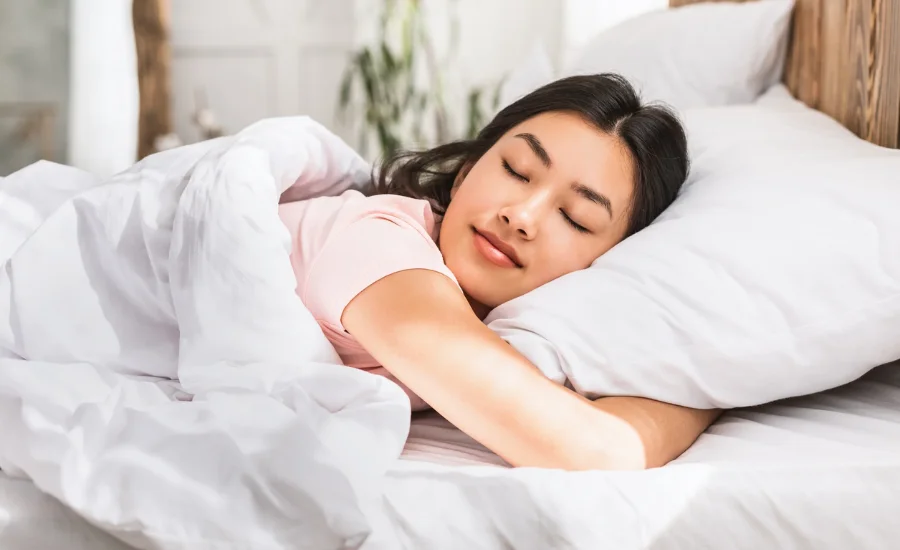
There are numerous effective strategies to enhance your sleep quality. Embracing good sleep hygiene practices can make a significant difference. Establishing a consistent daily routine is key; maintaining regular sleep and wake times helps regulate your body’s internal clock, facilitating easier sleep onset and natural awakening. This may involve activities such as reading, taking a warm bath, practicing relaxation techniques, or listening to calming music, promoting a sense of relaxation and readiness for sleep.
Creating a sleep-conducive environment is also crucial. Consider using blackout curtains, earplugs, or a white noise machine if you’re sensitive to light or noise disturbances. Investing in a comfortable mattress and supportive pillows can significantly improve sleep comfort. Keeping your bedroom clean and organized contributes to a more soothing and inviting atmosphere conducive to rest.
Reducing caffeine and alcohol intake, especially in the hours leading up to bedtime, can further enhance sleep quality. Caffeine, a stimulant, can interfere with sleep, so it’s advisable to avoid it later in the day. Opting for caffeine-free beverages like herbal tea or warm milk can promote relaxation without disrupting sleep patterns. While alcohol may induce drowsiness initially, it can disrupt sleep cycles and prevent restorative sleep. Minimizing or avoiding alcohol consumption in the evening can promote better sleep quality.
Incorporating these practices into your daily routine can foster a healthier sleep environment and cultivate habits that support improved sleep. Enhanced sleep quality can yield numerous benefits, including better mood, sharper cognitive function, and overall improved health. Prioritizing adequate sleep can profoundly impact your well-being and quality of life.
Exploring Natural Remedies For Better Sleep2907
In addition to lifestyle changes, various natural remedies can support restful sleep. Herbal supplements such as valerian root and chamomile have long been utilized for their calming effects and ability to enhance sleep quality. Valerian root is recognized for its sedative properties, which can shorten the time it takes to fall asleep and deepen sleep. Chamomile, commonly consumed as a tea, is celebrated for its calming properties, easing anxiety and promoting tranquility.
Aromatherapy with essential oils like lavender and cedarwood can also promote relaxation. Lavender oil, extensively researched for its soothing and sleep-promoting effects, can be diffused in the bedroom or applied to pillows to create a serene sleep environment. Cedarwood oil, with its warm, earthy scent, aids in stress reduction and fosters a calm mindset conducive to sleep.
Other natural aids include melatonin supplements and magnesium. Melatonin, a hormone crucial for regulating sleep cycles, is beneficial for those with irregular sleep patterns or jet lag. Magnesium, essential for muscle relaxation, can alleviate insomnia symptoms. Foods rich in magnesium, such as almonds, spinach, and bananas, or magnesium supplements, can be integrated into the diet to support better sleep.
Mindfulness and relaxation techniques such as deep breathing exercises, meditation, and yoga can also prepare the body and mind for sleep. These practices reduce stress and anxiety, facilitating a more restful and uninterrupted night’s sleep.
By incorporating these natural remedies and practices into your routine, you can enhance sleep quality and achieve the restorative rest needed for overall well-being. Integrating these approaches with lifestyle adjustments and good sleep hygiene fosters significant improvements in daily functioning and overall health.
Embracing Technology For Sleep2907 Enhancement
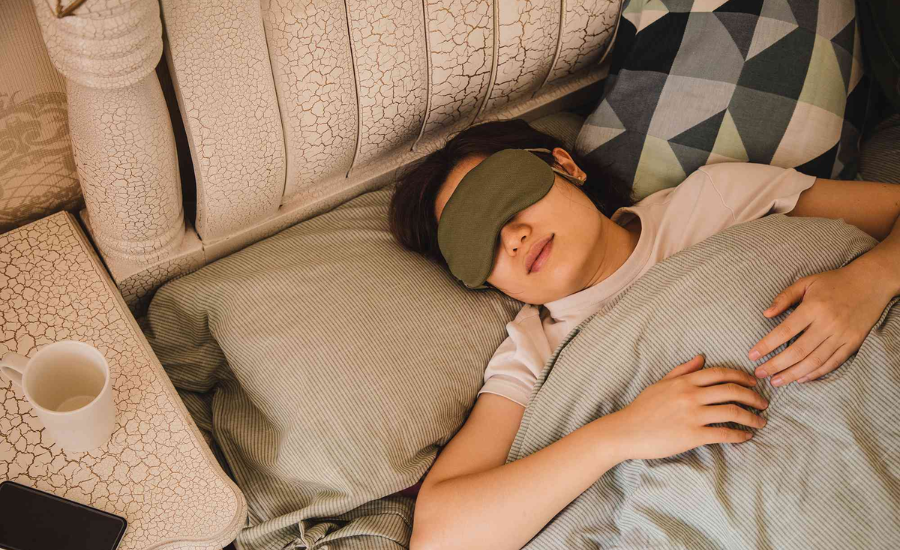
In today’s digital era, technology offers innovative solutions to enhance sleep quality. From advanced sleep monitoring devices to smart bedding systems, there’s a range of tools available to help individuals track and improve their sleep patterns. Sleep trackers, such as wearable fitness devices and mobile apps, provide valuable insights into sleep duration, quality, and interruptions. Analyzing this data enables users to identify trends and make informed adjustments to their sleep routines and environment for better overall sleep quality.
Smart mattresses represent another technological advancement tailored for optimal sleep. These mattresses often feature adjustable firmness levels, temperature regulation, and sensors that monitor sleep patterns and adjust settings accordingly. Some can even integrate with smart home devices like lights and thermostats to create a personalized sleep environment conducive to deep, uninterrupted sleep.
Beyond hardware solutions, mobile applications offer a variety of tools to support better sleep. Apps offering guided meditation, relaxation techniques, or white noise can be beneficial for promoting relaxation and reducing pre-sleep stress. Guided meditation apps, led by experienced instructors, provide audio sessions to calm the mind and prepare for sleep. White noise apps mask disruptive sounds, maintaining a consistent background noise ideal for a quiet sleep environment.
Additionally, there are apps providing sleep hygiene tips, personalized schedules, and reminders for maintaining consistent bedtime routines. These apps help establish healthier sleep habits and track progress over time, empowering users to take proactive steps toward improving sleep quality.
By embracing these technological innovations and integrating them into daily routines, individuals can harness the benefits of modern technology to support better sleep and overall well-being. Whether through data-driven insights from sleep trackers or relaxation techniques from mobile apps, these tools contribute to achieving restful and rejuvenating sleep in today’s digital age.
Using Technology To Help You Sleep2907
In the world of digital health, technology has advanced significantly to offer fun and unique ways to improve sleep. Sleep tracking devices have evolved to provide detailed insights into sleep patterns, including metrics like sleep duration, quality, and stages. These devices, which range from wearable fitness trackers to dedicated sleep monitors, use sensors to track movements, heart rate, and even breathing patterns during sleep. By analyzing this data, users can gain a better understanding of their sleep habits and make informed adjustments to optimize their sleep environment and routines.
Smart mattresses represent another innovative approach to enhancing sleep quality. These mattresses often feature built-in sensors that monitor sleep metrics and adjust mattress settings, such as firmness and temperature, in real-time to promote optimal comfort and support throughout the night. Some smart mattresses can also integrate with other smart home devices, allowing for a seamless sleep environment that adapts to individual preferences and needs.
In addition to hardware solutions, mobile apps offer a variety of tools designed to support better sleep. Guided meditation apps provide audio sessions led by meditation experts, helping users relax their minds and bodies before bedtime. These sessions often focus on breathing exercises, progressive muscle relaxation, and mindfulness techniques to promote a calm and tranquil state conducive to sleep.
Similarly, white noise apps can mask disruptive sounds and create a consistent background noise that soothes and lulls users into sleep. Whether it’s the sound of ocean waves, rainfall, or ambient noise, white noise apps can help drown out distractions and create a serene sleep environment.
Beyond individual tools, there are comprehensive sleep improvement platforms that combine various technologies and techniques. These platforms may offer personalized sleep coaching, sleep hygiene tips, and customized sleep schedules to help users establish healthier sleep habits and routines. By integrating these digital tools into daily life, individuals can take proactive steps toward improving sleep quality and overall well-being in a modern and tech-savvy way.
Ultimately, the integration of technology into sleep improvement not only enhances convenience and accessibility but also empowers individuals to take control of their sleep health. By leveraging these digital innovations, people can unlock the potential for better sleep and enjoy the numerous benefits of restorative rest in today’s digital age.
You May Also Like To Read: Semantic-Error-Chapter-79
Tips On Natural Sleep2907 Remedies
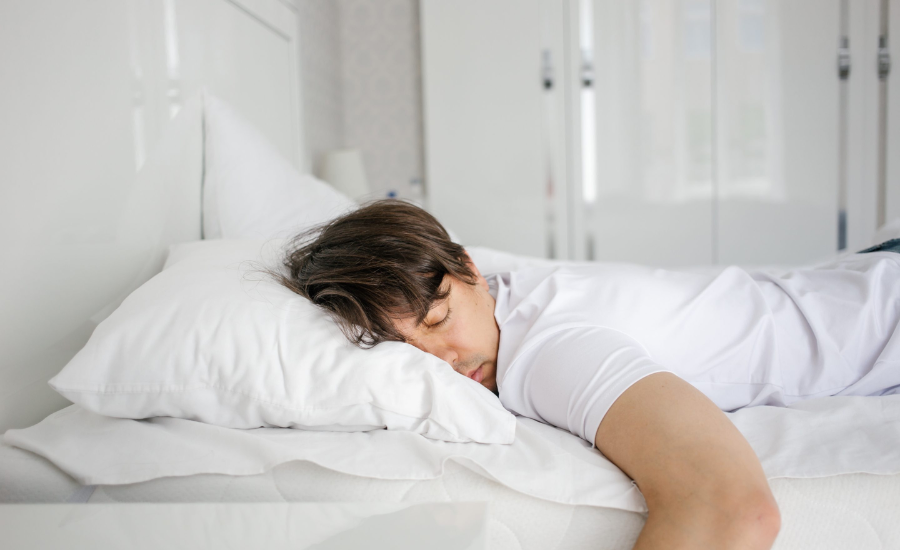
In the contemporary digital landscape, technology presents innovative solutions for enhancing sleep quality. From cutting-edge sleep monitoring gadgets to intelligent bedding systems, a diverse array of tools exists to assist individuals in tracking and optimizing their sleep patterns. Devices like wearable fitness trackers and mobile apps designed for sleep tracking offer valuable insights into sleep duration, quality, and interruptions. By analyzing this data, users can discern patterns and make informed adjustments to their sleep routines and surroundings to achieve better overall sleep quality.
Smart mattresses exemplify another technological leap forward in sleep optimization. These mattresses often feature customizable firmness settings, temperature control capabilities, and sensors that monitor sleep patterns, automatically adjusting settings as needed. Some models can integrate seamlessly with other smart home devices such as lighting and thermostats, creating a personalized sleep environment conducive to deep and uninterrupted sleep.
In addition to hardware solutions, mobile applications provide a diverse range of tools aimed at promoting better sleep. Apps offering guided meditation, relaxation techniques, or ambient white noise can effectively reduce pre-sleep stress and induce relaxation. Guided meditation apps led by experienced instructors offer audio sessions that help calm the mind and prepare the body for sleep. White noise apps mask disruptive sounds, maintaining a steady background noise level ideal for creating a tranquil sleep atmosphere.
Furthermore, there are apps dedicated to offering sleep hygiene advice, personalized sleep schedules, and reminders to maintain consistent bedtime routines. These applications assist users in establishing healthier sleep habits and monitoring their progress over time, empowering them to take proactive steps toward improving their sleep quality.
By embracing these technological advancements and integrating them into their daily lives, individuals can leverage modern technology to support better sleep and overall well-being. Whether through data-driven insights from sleep tracking devices or relaxation techniques facilitated by mobile apps, these tools contribute significantly to achieving rejuvenating and restorative sleep in today’s digital age.
FAQs
1. How do sleep tracking devices work?
Sleep tracking devices use sensors to monitor your movements and sometimes your heart rate throughout the night. They collect data on your sleep duration, quality, and any interruptions, providing insights into your sleep patterns.
2. Are smart mattresses worth investing in for better sleep?
Smart mattresses offer features like adjustable firmness, temperature control, and sleep pattern monitoring. For those struggling with sleep quality, these innovations can create a personalized sleep environment that supports deep, uninterrupted rest.
3. Can mobile apps really help improve sleep quality?
Yes, mobile apps can be effective tools for promoting better sleep. They offer guided meditation, relaxation techniques, white noise, and sleep hygiene tips, which can reduce stress and help prepare the mind and body for sleep.
4. What are some examples of sleep hygiene tips recommended by apps?
Apps often suggest maintaining a consistent sleep schedule, creating a relaxing bedtime routine, optimizing the sleep environment (cool, dark, quiet), and limiting screen time before bed to promote better sleep hygiene.
Conclusion
In conclusion, technology in the form of sleep tracking devices, smart mattresses, and mobile applications has revolutionized the way we approach sleep hygiene and quality. These innovations provide valuable insights into sleep patterns, offer personalized sleep environments, and deliver effective relaxation techniques to promote restful sleep. By integrating these technological advancements into daily routines, individuals can take proactive steps toward improving their sleep and overall well-being. Embracing these tools empowers individuals to achieve rejuvenating and restorative sleep in the modern digital age, enhancing both physical health and mental clarity for better quality of life.
Read Next: Stellar Whirl

